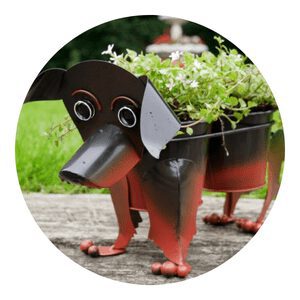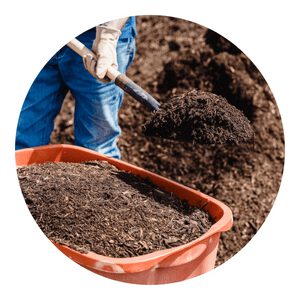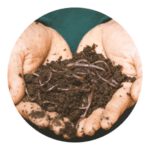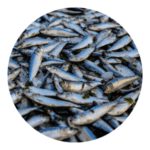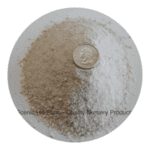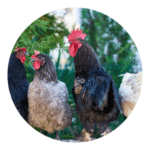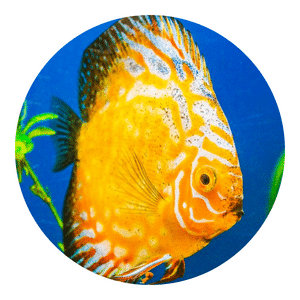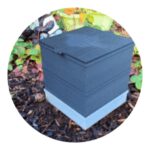Using cow manure in your garden
Cow manure is a great way to fertilize your garden and keep it healthy. However, it’s important to know how to use it properly.
Chappy the gardener’s new guide provides everything you need to know about using cow manure in your garden, from how to choose the right type of manure to how to apply it correctly.
This guide is a must-read for anyone who wants to have a healthy, thriving garden.
With Chappy’s expert advice, you’ll be able to get the most out of cow manure and keep your garden looking its best.
Cow Manure Menu
Cow manure is a great fertilizer for your garden
When most people think of cow manure, they think of something that smells bad and is dirty.
However, cow manure is a great fertilizer for your garden. It is high in nitrogen and potassium, which are essential nutrients for plants.
Additionally, cow manure helps to improve the soil structure and moisture retention. Using cow manure as a fertilizer can help to produce healthier plants and increase your yield.
What is cow manure and why is it good for your garden?
Cow manure is easy to apply and it is a natural product that is free for the taking.
Benefits of using cow manure in your garden
There are many benefits to using cow manure in your garden.
For one, cow manure is rich in nutrients that help plants grow healthy and strong. It is also a natural fertilizer, which means it doesn’t contain any harmful chemicals.
Additionally, cow manure helps improve the soil’s structure and water retention capacity. This is especially beneficial for gardens located in dry climates.
Lastly, using cow manure is a great way to recycle waste materials and help reduce greenhouse gas emissions.
How to use cow manure in your garden
Cow manure is a great fertilizer for gardens because it is high in nitrogen and organic matter. It also has a high pH, which helps to alkalize the soil.
Here are some tips on how to use cow manure in your garden:
1. Manure should be applied in the fall or winter, before planting vegetables.
2. Apply at least 2 inches of manure to the soil, and mix it in well.
3. You can also apply a composted form of manure, which is less likely to burn plants.
4. Avoid applying manure to areas where you are growing fruits and vegetables that will be eaten raw, such as lettuce and tomatoes.
When to use cow manure in your garden
It is important to use cow manure in your garden at the right time of year.
In the spring, use cow manure to help stimulate growth.
In the summer, use it to help keep plants cool.
In the fall, use it to help plants prepare for winter.
What to do with the leftover cow manure
You can use it as a natural fertilizer for your garden, spread it on your fields to help increase crop yields, or use it as an energy source.
Manure can also be used to make compost or methane gas. Whatever option you choose, cow manure is a valuable resource that should not be wasted.
Can you put cow manure directly in the garden?
There is a lot of debate surrounding the use of cow manure in vegetable gardens.
Some people swear by it, while others believe that the risk of contaminating plants with harmful pathogens is just too high.
So, can you put cow manure directly in the garden?
The answer to that question depends on a number of factors, including the type of manure and where you live.
In general, fresh or composted cow manure is a great fertilizer for vegetable gardens.
It is high in nitrogen, potassium, and phosphorus, all of which are essential nutrients for plants.
However, if you live in an area where there is a lot of livestock farming, it’s important to make sure that the manure has been composted properly to kill any harmful pathogens.
How much cow manure should I add to my garden?
Adding manure to your garden can improve soil structure, water retention, and drainage. It also helps to break down organic matter, making it available as a food source for plants.
Before adding manure to your garden, be sure to read the label to see if it is composted or raw.
Composted manure has been through a process that kills any harmful pathogens, while raw manure may contain them.
If you are adding fresh manure to your garden, do so in the fall or winter when the ground is not frozen. Mix it in with the top layer of soil and water well.
How do I prepare cow manure for my garden?
When it comes to vegetable gardening, many people swear by using cow manure as a natural fertilizer.
Not only is manure an excellent source of nitrogen, phosphorus, and potassium—the three main ingredients in most fertilizers—it is also free and easy to come by.
If you have a cow or other livestock on your property, you can probably just go outside and start picking up manure right now!
However, there are a few things you should know before spreading manure on your garden.
Collect manure from a nearby farm
One way to get manure is to collect it from a nearby farm. Ask the farmer if you can collect the manure from his livestock barn or fields.
Be sure to get permission before you start collecting!
Once you have the manure, you’ll need to compost it before you can use it as fertilizer.
Composting is a process of breaking down organic matter into a nutrient-rich mulch.
To compost manure, mix it with straw, leaves, or wood chips. Then turn the mixture regularly for about six weeks until it’s dark and crumbly.
Spread the manure in a thin layer and let it dry for a few days
The weather is warming up, which means it’s time to start thinking about getting your garden ready for the growing season.
One of the most important things you can do is add manure to your soil.
Manure is a great source of nitrogen, phosphorus, and potassium, all of which are essential nutrients for plants.
The best way to add manure to your garden is by spreading it in a thin layer and letting it dry for a few days.
This will help kill any weed seeds that might be present and will also help break down the manure so that it can be absorbed by the soil.
Till the manure into the soil before planting
Don’t be fooled by the name: manure is a fantastic fertilizer for your garden.
Not only does it add much-needed nutrients to the soil, but it also helps improve soil structure and moisture levels.
The best time to add manure to your garden is before you plant, but you can also add it in the fall or early spring.
Water the plants regularly to help them absorb the nutrients from the manure
When you are adding manure to your garden, it is important that you water the plants regularly.
This will help them absorb the nutrients from the manure and grow healthy and strong.
Not watering the plants can cause them to become overwhelmed with nitrogen, which can lead to nutrient deficiencies and plant death.
Make sure to water the plants regularly when you are adding manure to your garden for best results.
Enjoy your healthy garden!
Repeat steps 2-5 as necessary throughout the season
Which plants do not like manure?
Manure is a great plant food, but not all plants like it.
Some plants do not like manure because it can make the soil too acidic.
For example, blueberries do not like acidic soil, so they would not do well if you fertilized them with manure.
Apples
When it comes to fertilizing apple trees, manure is not the best option. In fact, using manure can actually do more harm than good.
Apple trees do not like high levels of nitrogen in the soil, and manure is high in nitrogen.
Apples also prefer a soil pH of 6.0-6.5, while manure raises the pH level of soil.
Using manure on apple trees can result in poor growth, chlorosis (yellowing of the leaves), and smaller apples.
Pears
Pears do not like manure. In fact, they really do not like it at all.
When pears are grown in close proximity to manure, their flavor is often times tainted and the fruit becomes mealy.
This is because the high levels of nitrogen in manure promote the growth of fungus on the trees, which can cause the fruit to rot.
Grapes
The saying “grapes do not like manure” is an old adage that farmers and vineyard owners have used for centuries to describe how grapes grow.
The saying is accurate, as research has found that applying manure to grapevines can decrease yields and fruit quality.
While manure may be beneficial to other crops, it is not recommended for grapevines.
Blueberries
If you’re looking for a plant to beautify your garden, blueberries are not the answer.
These shrubs do not like manure and prefer acidic soil.
In fact, if the pH level of the soil is too high, they will not produce fruit.
Strawberries
It’s a common misconception that all plants love manure. In fact, strawberries specifically do not like manure.
While it is true that manure contains many nutrients that are essential for plant growth, strawberries also need soil that has a balanced pH level and good drainage.
Manure can raise the pH level of soil to levels that are harmful to strawberry plants, and it can also make the soil too wet or too dry.
Raspberries
Raspberries are a delicate fruit that grow well in certain environments, but do not like manure.
If you are looking to plant raspberries in your garden, it is important to know what type of soil they prefer and what amendments to add to the soil to make sure they thrive.
Raspberries prefer acidic soils with a pH of 6.0 or lower. They also need plenty of organic matter in the form of compost, mulch, or manure.
Adding manure to the soil around raspberry plants can cause them to become sick and stunt their growth.
In conclusion, using cow manure in your garden is a great way to improve the quality of your soil and boost your plants’ growth.
It is a natural, organic fertilizer that is readily available and affordable.
Just be sure to compost it first to break down any potential toxins and pathogens.
Happy gardening!
Click To Grow
Helps Us Grow – Share If You Like










